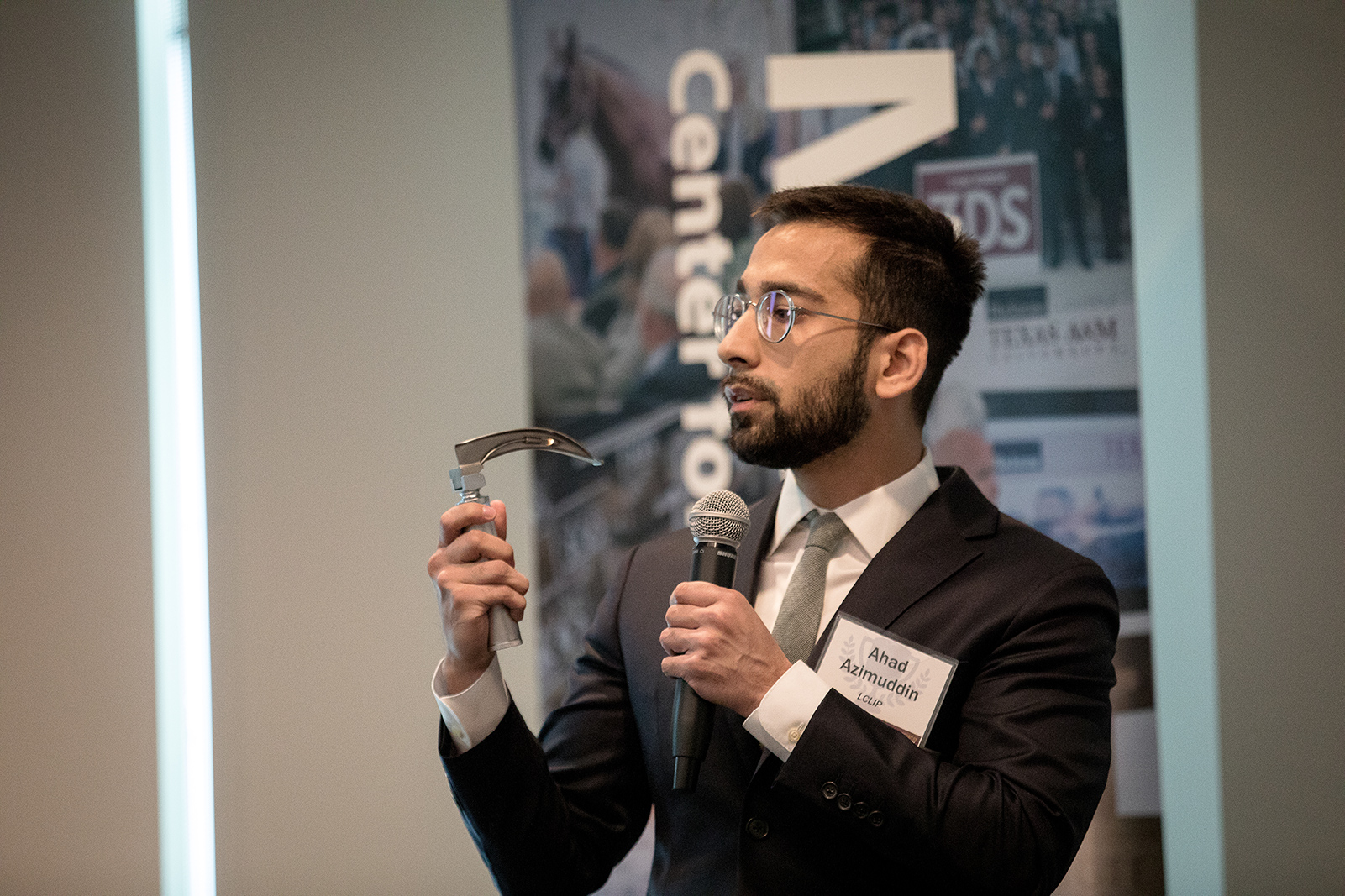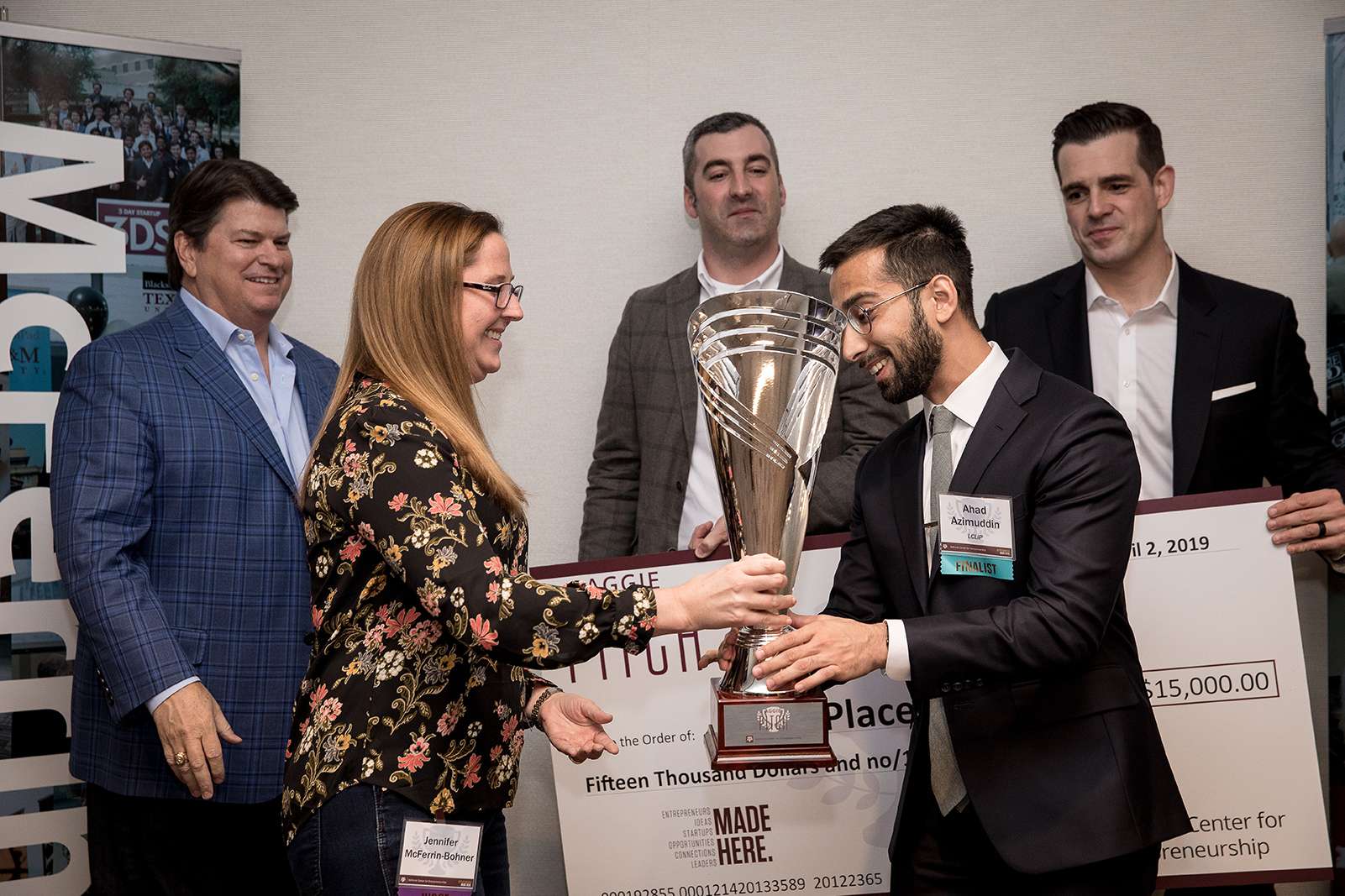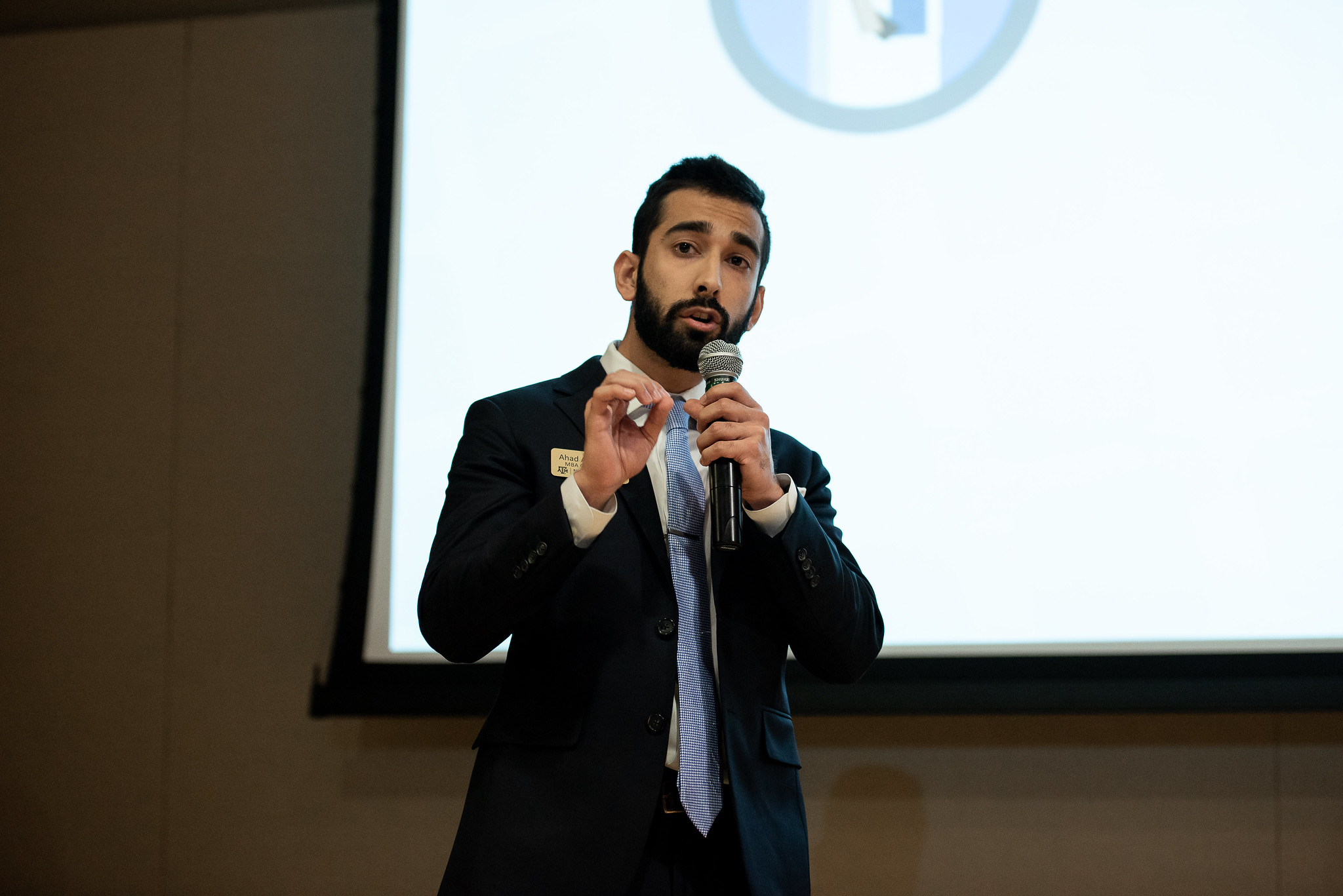MD or entrepreneur? At Texas A&M you don’t have to choose.
September 16, 2019
|
Mays Business School
 Ahad Azimuddin ’20 is a born entrepreneur. He sees opportunity everywhere he goes and can’t help but want to solve every problem he encounters. He’s also whip-smart and on a personal mission to serve as a pioneer and champion for innovative medical devices. “I really think I can help bridge the gap between medicine and commercialization,” he stated. Azimuddin knew the next step in his career path was medical school but still wanted the ability to explore his interest in entrepreneurship. What do you do when you want to combine your passion for medicine and business? You enroll at Texas A&M University.
Ahad Azimuddin ’20 is a born entrepreneur. He sees opportunity everywhere he goes and can’t help but want to solve every problem he encounters. He’s also whip-smart and on a personal mission to serve as a pioneer and champion for innovative medical devices. “I really think I can help bridge the gap between medicine and commercialization,” he stated. Azimuddin knew the next step in his career path was medical school but still wanted the ability to explore his interest in entrepreneurship. What do you do when you want to combine your passion for medicine and business? You enroll at Texas A&M University.
Azimuddin is a medical student in the MD Plus program at the Texas A&M College of Medicine. The MD Plus coursework is incredibly rigorous, but when he graduates in 2023, Azimuddin will have obtained both an MBA and an MD. “The resources provided at A&M are just incredible. Other universities and medical schools simply don’t provide these opportunities,” he said.
Texas A&M University is home to the McFerrin Center for Entrepreneurship, a nationally ranked entrepreneurship center that offers over 30 programs and events that develop and support Aggie entrepreneurs. The McFerrin Center also runs the on-campus student business incubator, Startup Aggieland. “So many other people around you are doing incredible things. Being able to connect with those people and learn from those people is huge, and the McFerrin Center for Entrepreneurship gives you that opportunity. I was always thinking, where are the startups at a university? Where on campus are they? I found Startup Aggieland and realized this is the environment and community where people are doing really cool stuff, and this is where you can learn from them.”
 During his first year at Texas A&M, Azimuddin developed a medical device called LCLIP, a laryngoscope attachment that alerts a physician when they’re in danger of causing dental damage and injury to a patient. The inspiration behind LCLIP actually came from his co-founder, Kevin Kotamarti, who dislodged a patient’s tooth while using a laryngoscope as a resident. “We have a provisional patent that’s been converted to PCT and have a year to nationalize. We’re at the point where we’re looking to license our product to manufacturing companies. LCLIP is classified as a 510K addition to an already cleared device. FDA approval is relatively simple compared to a new medication or a completely new device. It’s the path of least resistance which is actually a big value proposition to the manufacturers.”
During his first year at Texas A&M, Azimuddin developed a medical device called LCLIP, a laryngoscope attachment that alerts a physician when they’re in danger of causing dental damage and injury to a patient. The inspiration behind LCLIP actually came from his co-founder, Kevin Kotamarti, who dislodged a patient’s tooth while using a laryngoscope as a resident. “We have a provisional patent that’s been converted to PCT and have a year to nationalize. We’re at the point where we’re looking to license our product to manufacturing companies. LCLIP is classified as a 510K addition to an already cleared device. FDA approval is relatively simple compared to a new medication or a completely new device. It’s the path of least resistance which is actually a big value proposition to the manufacturers.”
When asked why he chose to solve this particular problem, Azimuddin said it was because he wanted to serve patients. “People look at a consent form, and no one cares that they saw vocal and dental damage. The patient is focused on brain damage or death. But that doesn’t mean it’s not there and it’s not costing the healthcare industry. 90% of anonymous survey takers said they caused some kind of dental damage in their career. That’s the opportunity that LCLIP has. We’re solving a problem that exists, but no one has given attention because it’s not a big flashy problem, but that doesn’t mean it’s not there.” Azimuddin doesn’t say “if LCLIP succeeds” instead he says, “when LCLIP succeeds.” It’s not that he believes failure isn’t an option; it’s simply that he already sees his first foray into entrepreneurship as a success. “So far, our first try is going really well. But if something doesn’t work out, if something doesn’t happen, we’ve gained so much knowledge for the next time we’re trying to get a device off the ground. We’re not treating LCLIP as if it’s our last idea. It’s our first idea of many, and it’s been an amazing learning experience. Hopefully whatever we gain from LCLIP, whether it’s knowledge or capital, will be immediately invested into the next project.”
 In addition to launching a startup, in 2019 Azimuddin took home 1st place at Aggie PITCH and Raymond Ideas Challenge. The cash prizes from these competitions have helped offset the cost of LCLIP. Azimuddin was also recently hired by a local medical device startup, Saber Corporation after he met the founder through the McFerrin Center’s Mentor Network. “Through Startup Aggieland, I actually got a job, and I’m now employed by Dr. Alan Glowczwski. He’s been the best mentor for LCLIP and also for medical school in general. He’s someone I’ll probably be 20 years from now.” Azimuddin pointed out that this support system has been invaluable to LCLIP and that it’s important for entrepreneurs to remember that you can’t do everything alone. “At Startup Aggieland, you meet a bunch of mentors, and I’m really glad I found a mentor who has gone through medical school and who I have so many similarities with. This is an opportunity that I get because I’m here at Texas A&M. I don’t think I’d have these same opportunities in many other places.”
In addition to launching a startup, in 2019 Azimuddin took home 1st place at Aggie PITCH and Raymond Ideas Challenge. The cash prizes from these competitions have helped offset the cost of LCLIP. Azimuddin was also recently hired by a local medical device startup, Saber Corporation after he met the founder through the McFerrin Center’s Mentor Network. “Through Startup Aggieland, I actually got a job, and I’m now employed by Dr. Alan Glowczwski. He’s been the best mentor for LCLIP and also for medical school in general. He’s someone I’ll probably be 20 years from now.” Azimuddin pointed out that this support system has been invaluable to LCLIP and that it’s important for entrepreneurs to remember that you can’t do everything alone. “At Startup Aggieland, you meet a bunch of mentors, and I’m really glad I found a mentor who has gone through medical school and who I have so many similarities with. This is an opportunity that I get because I’m here at Texas A&M. I don’t think I’d have these same opportunities in many other places.”
Earning your MD is difficult enough but combining it with the rigor of an MBA program seems like a recipe for exhaustion. However, Azimuddin says that pursuing his passion for entrepreneurship will make him a better doctor in the long run. “Yes I can be a doctor, but there’s so much more to being a doctor. This initial year has attuned my brain. Going through medical school with this mindset I’ve developed, I’m going to be spotting things left and right. I’m kind of worried that I’ll lose track of everything because there are so many things I want to fix.”


